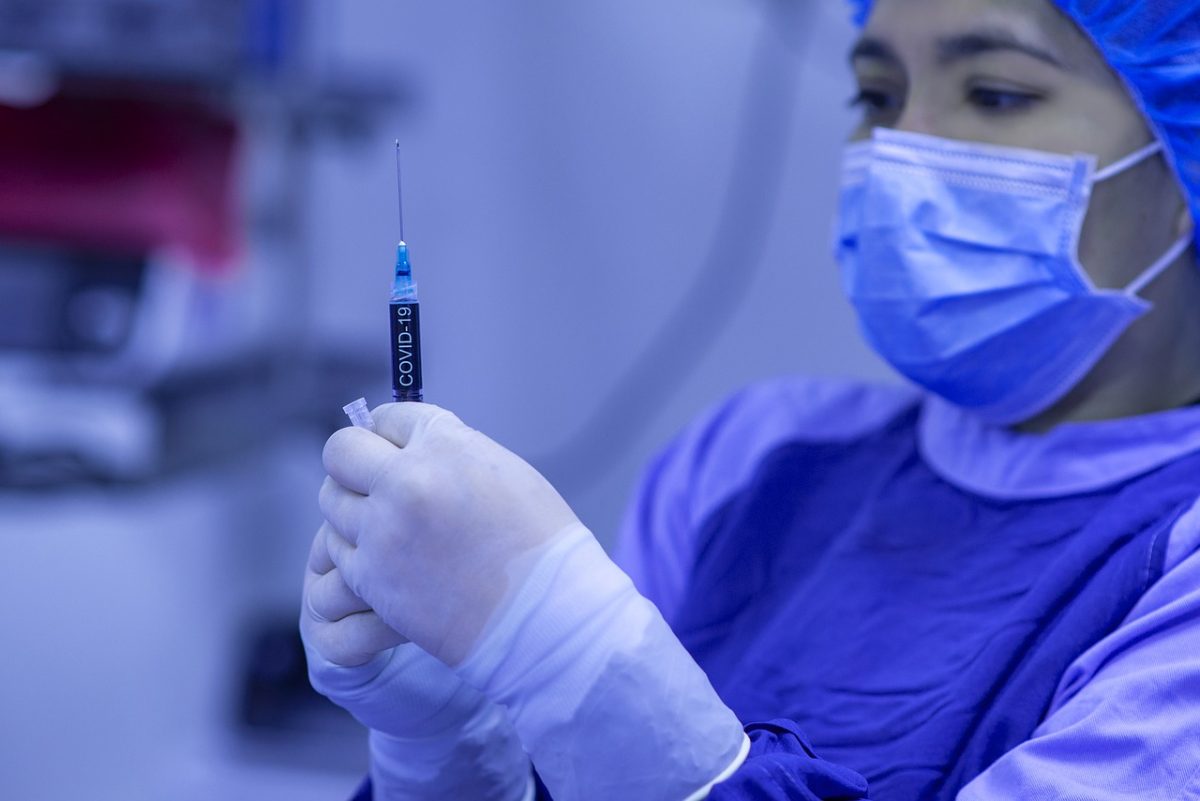KUALA LUMPUR, Dec 29 — Malaysia’s national Covid-19 vaccination programme should target the elderly and people with underlying medical conditions; migrant workers and detainees; and essential service staff, the Galen Centre for Health and Social Policy said.
The health think tank recommended first Covid-19 vaccination priority of people aged above 60 and those living with pre-existing conditions like cancer, chronic kidney disease, and heart disease.
The Galen Centre noted that over 80 per cent of Covid-19 deaths in the country occurred in people aged 50 and above. According to the Ministry of Health (MOH), 87 per cent of people who died of Covid-19 in Malaysia had at least one underlying medical condition, and 60 per cent had at least two or more.
Severe Covid-19 disease disproportionately affects people living with cancer, chronic kidney disease, heart conditions, type 2 diabetes, obesity, and chronic obstructive pulmonary disease, said the Galen Centre.
The Galen Centre noted that people with severe Covid-19 required intensive, costly, and prolonged hospital-based management and rehabilitation. If these Covid-19 patients survive, they face medium- to long-term effects like major organ damage, such as to the heart and kidneys, chronic respiratory issues, and mental and neurological aftereffects.
“These treatment and long-term care challenges impose significant burdens on health systems and their limited financial and human resources.
“Acknowledging the aforementioned challenges and the need to mitigate them, countries including the United Kingdom, United States, Canada, Australia, and Singapore have all chosen to prioritise vaccination for this group in their rollout,” said the Galen Centre in its policy brief on Covid-19 vaccination in Malaysia.
The Galen Centre listed people living in prisons, immigration detention centres, and factory worker dormitories as the second priority group for Covid-19 vaccines, noting that these were settings with increased risk of coronavirus transmission.
Many Covid-19 clusters in Malaysia have emerged from these densely populated settings, while the positivity rates in such clusters are high, as the Galen Centre highlighted a 76.9 per cent positivity rate in the Teratai cluster of worker dormitories in Klang, Selangor, in early December.
“Safe distancing guidelines, like maintaining a physical distance of 1 metre and limiting the number of people in a space, cannot be realistically enforced in these settings. The main risk factor in this group, i.e physical proximity, is fundamental and difficult to address,” the Galen Centre wrote.
“Together, these factors augment the risk of transmission of respiratory illnesses more broadly, as shown in research demonstrating how prisons are institutional ‘amplifiers’ of latent tuberculosis infection in Malaysia.”
Repetitive lockdown measures on localised clusters, said the Galen Centre, were unfeasible, given the economic, social, and mental health impacts of lockdowns, and the inevitable movement of people within clusters and between the cluster and surrounding communities.
The Galen Centre recommended a third Covid-19 vaccination priority group of workers in essential service sectors, including health and social care; law enforcement; cleaning and sanitation; and water, food, and electricity.
“Health care workers are at disproportionately high risk of Covid-19 compared to the general population. This is by nature of their work, where they face patients who may be infected, and risk transmitting the virus to people who are vulnerable to severe disease,” said the Galen Centre.
MOH reported that as of December 21, a total of 1,880 Covid-19 cases have been detected among health care workers. Covid-19 outbreaks were also reported on December 18 among hospital staff in six public hospitals in the Klang Valley: Tengku Ampuan Rahimah Hospital, Klang (54 cases), Serdang Hospital (29 cases), Sungai Buloh Hospital (15 cases), Kuala Lumpur Hospital (10 cases), Ampang Hospital (five cases), and Selayang Hospital (four cases).
“However, while doctors and nurses are widely acknowledged to need protection, other essential service workers do not receive the same level of consideration,” said the Galen Centre.
The think tank highlighted essential services listed by the government in an order under the Prevention and Control of Infectious Disease Act:
- food supply
- health care and medical
- water
- electricity and energy
- security and defence
- waste management
- sewerage
- postal
- immigration
- Customs
- prison
- fire
- radio communication (TV and broadcasting)
- telecommunications
- banking and finance
- e-commerce
- wildlife
- transport by land, water or air
- port, dock and airport services
- fuel and lubricants production, supply, distribution, storage
- hotels and accommodations
Over 10,000 police personnel were quarantined in October as they were involved in immigration and roadblock duties. That same month, 161 police officers and their families were treated for Covid-19 infection.
“Social care services take care of some of the most vulnerable people in the community throughout challenging lockdowns,” said the Galen Centre.
It noted that many residential care homes in Malaysia were privately run, often unregistered, and had limited protective gear to protect elderly residents and care workers. At least six Covid-19 deaths were linked to clusters in care homes in the Klang Valley.
“Failing to protect our essential workers adequately jeopardises the core social, economic, and service delivery systems that are crucial to ensuring the public’s basic needs and economic recovery and reopening.”
The government has purchased 12.8 million doses of the Pfizer-BioNTech vaccine (with options for another 12.8 million doses), 6.4 million doses of AstraZeneca-Oxford University’s shot through direct procurement, and another 6.4 million doses of the AstraZeneca vaccine through the global COVAX facility.
The Pfizer and AstraZeneca vaccines are two-dose regimens, with the former requiring ultra-cold storage at minus 70 degrees Celsius, while AstraZeneca’s shot can be stored at normal fridge temperature of two to eight degrees Celsius.
The first million doses of the Pfizer-BioNTech vaccine, which has been approved by American and European regulators, are expected to arrive in Malaysia by February 2021.
Science, Technology and Innovation Minister Khairy Jamaluddin said the Covid-19 Vaccine Supplies Access Guarantee Special Committee (JKJAV), which he co-chairs with Health Minister Dr Adham Baba, will recommend to the Cabinet next month a Covid-19 vaccination strategy for Malaysia.








